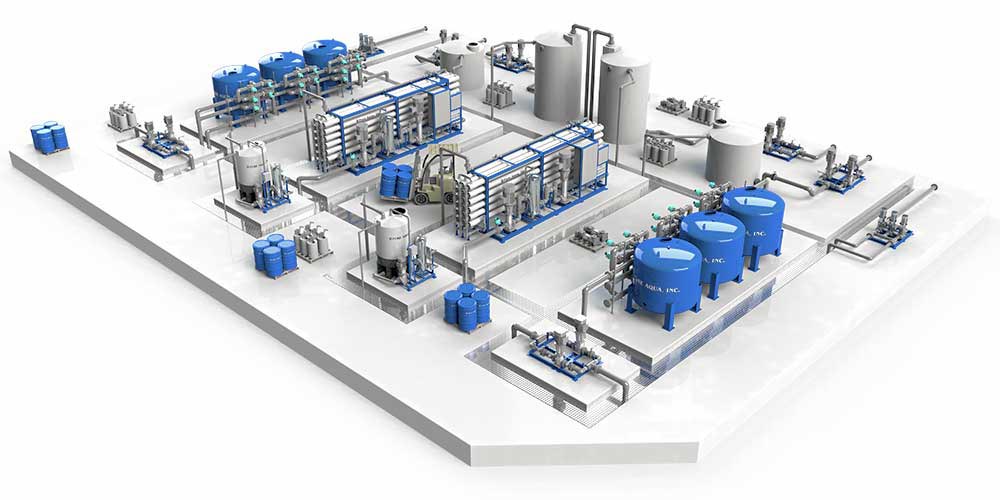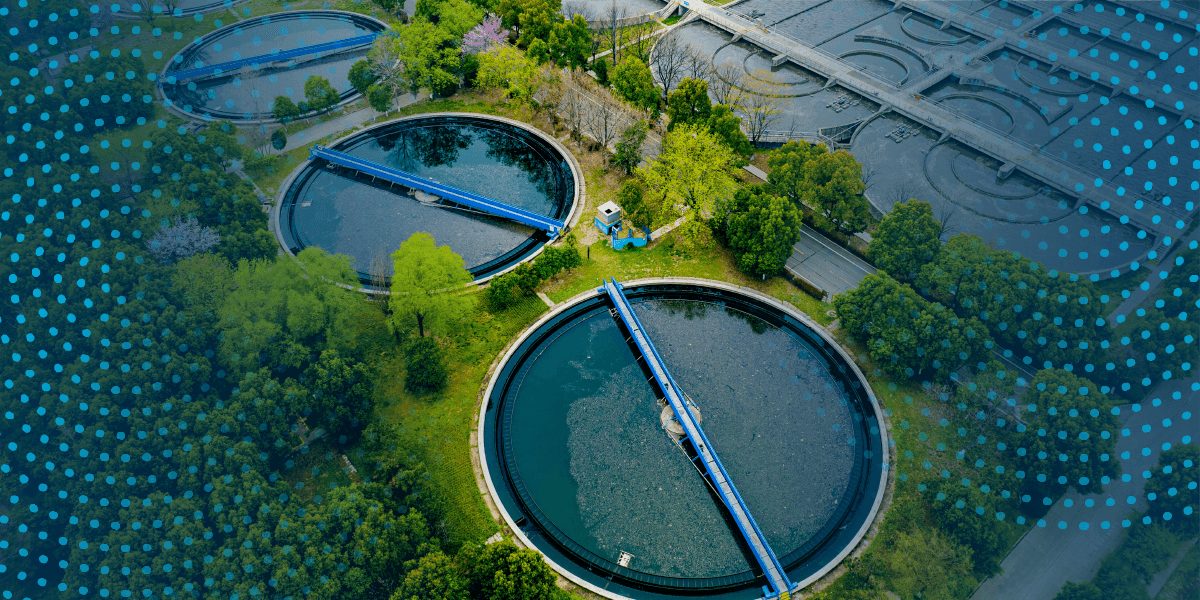Water Technology Startups vs Legacy Systems: How They Compare
Wiki Article
Discovering Water Technology Startups: How They Reinvent Lasting Solutions
Water Technology start-ups are arising as critical gamers in the quest for sustainable solutions to global water problems. These companies utilize ingenious modern technologies to boost water efficiency and management. Their payments attend to pushing difficulties such as deficiency and contamination. Nevertheless, in spite of their potential, they encounter various obstacles that can influence their success. Understanding these characteristics clarifies the future of water sustainability and the duty these start-ups might play in shaping it.The Relevance of Water Technology in Today's World
As global water scarcity heightens, the relevance of water Technology comes to be progressively evident. Water Technology plays an important function in attending to the difficulties posed by lessening freshwater resources and enhancing demand. It incorporates a broad series of developments, consisting of advanced filtering systems, wastewater treatment technologies, and clever watering options. These improvements not only improve the performance of water usage however also advertise sustainable techniques across different fields, including agriculture, sector, and city development.The importance of water Technology extends beyond source management. It cultivates durability against climate adjustment effects, such as floods and dry spells, by providing adaptive services for water preservation and monitoring. Additionally, it supports public health and wellness by ensuring access to tidy and risk-free drinking water. As the globe encounters expanding water-related challenges, the assimilation of innovative water technologies is important for promoting lasting advancement and protecting water availability for future generations.
Innovative Solutions From Water Tech Startups
While traditional approaches to water management have served their function, a brand-new wave of water technology startups is changing the sector with cutting-edge remedies (Water Technology Startups). These companies utilize cutting-edge technologies to address pressing water issues, such as deficiency, contamination, and ineffective distribution. Lots of startups make use of expert system and artificial intelligence to maximize water use and anticipate demand, causing even more lasting practicesIn addition, several companies concentrate on creating sophisticated filtration systems that eliminate pollutants and make water safe for intake. Others explore decentralized water therapy technologies, enabling areas to handle their water sources better. In addition, some startups are pioneering smart irrigation remedies that minimize water waste in farming, advertising environmental conservation.
Case Researches: Effective Water Technology Startups
Many water Technology start-ups have become leaders in attending to worldwide water difficulties through cutting-edge methods. One notable example is Xylem, which concentrates on water analytics and smart infrastructure to optimize water use and lower waste. Their solutions have actually been carried out in numerous municipalities, demonstrating considerable renovations in water management efficiency.One more effective start-up, Absolutely no Mass Water, has actually established solar-powered hydropanels that remove water vapor from the air, giving lasting drinking water in arid regions. Water Technology Startups. This Technology has actually been deployed in numerous countries, making sure areas have accessibility to clean water
AquaVenture Holdings operates a diverse portfolio of water-as-a-service solutions, dealing with water shortage via desalination and wastewater therapy. Their jobs have verified necessary in areas encountering extreme water lacks, showcasing the capacity of innovative water modern technologies to develop long lasting, favorable effects. These study highlight the transformative possibility of startups in the water Technology sector.
The Role of Smart Technology in Water Management
Smart Technology plays a vital duty in modern water monitoring by leveraging IoT applications to maximize resource usage. Information analytics boosts effectiveness by supplying workable understandings, while remote tracking remedies enable real-time oversight of water supply. With each other, these advancements change exactly how water is managed, advertising sustainability and operational efficiency.IoT Applications in Water
As water shortage and management obstacles heighten internationally, the integration of Net of Points (IoT) applications has become a critical solution in enhancing water resources. IoT Technology assists in real-time monitoring and evaluation of water systems, enabling more effective usage and administration. Sensors deployed in numerous water facilities can track top quality, flow prices, and leakage, offering beneficial data to stakeholders. This data encourages utilities and customers to make informed decisions, minimizing waste and boosting conservation initiatives. Additionally, wise watering systems utilize IoT to maximize water delivery for agriculture, making sure that plants receive the appropriate quantity of water at the correct time. Generally, IoT applications are changing traditional water administration methods, promoting sustainability and strength in water source systems.Information Analytics for Efficiency
Taking advantage of information analytics is crucial for boosting efficiency in water management. Water Technology startups are progressively utilizing innovative analytics to maximize source allocation and lower waste. By evaluating data from numerous resources, these startups can identify patterns and trends that inform better decision-making. For instance, anticipating analytics can forecast water demand, enabling energies to readjust supply as necessary, thereby minimizing shortages and surpluses. Furthermore, real-time data handling makes it possible for the instant discovery of leakages and inefficiencies within distribution systems, substantially lowering functional costs. Data-driven understandings encourage stakeholders to carry out targeted preservation techniques, fostering lasting practices. Fundamentally, incorporating data analytics right into water administration not only simplifies operations but also advertises long-term sustainability in water source usage.Remote Surveillance Solutions
While standard water management systems usually fight with inefficiencies, remote monitoring services are transforming exactly how water resources are managed. These cutting-edge technologies make it possible for real-time information collection and analysis, permitting stakeholders to keep track of water top quality, circulation prices, and usage patterns from afar. Using sensing units and IoT gadgets, remote monitoring offers prompt insights that promote positive decision-making. This change not just improves operational effectiveness yet also promotes sustainability by minimizing water waste and optimizing resource allowance. Furthermore, remote monitoring systems can determine possible concerns before they escalate, thus lessening the risk of contamination or infrastructure failing. As water Technology start-ups continue to develop these remedies, the sector is positioned for considerable advancements in sustainable water monitoring methods.Obstacles Facing Water Technology Startups
Water Technology startups come across substantial difficulties that can hinder their development and success. Key concerns consist of securing ample financing, navigating with complicated regulatory environments, and contending in a congested market. These challenges need calculated preparation and development to get over.Financing and Financial Investment Hurdles
Innovation in water Technology holds tremendous capacity for dealing with international obstacles, start-ups in this field commonly encounter significant financing and investment obstacles. Lots of financiers continue to be careful, viewing the water field as risky due to its intricate regulative landscape and long growth timelines. In addition, start-ups frequently struggle to show immediate profitability, which can prevent prospective backers. Standard financial backing may forget water modern technology, preferring industries with quicker returns, such as technology or durable goods. Protecting gives and federal government funding can be affordable and time-consuming, additional complicating monetary stability. As a result, many cutting-edge water Technology start-ups discover themselves in a ragged edge, calling for creative financing methods to browse these financial barriers and attain their objectivesRegulatory Conformity Issues
Guiding regulatory compliance is a considerable obstacle for startups in the water Technology sector, as they need to face a myriad of local, national, and worldwide laws. These regulations usually encompass water quality standards, environmental protection laws, and safety and security procedures, which can differ commonly throughout jurisdictions. Startups may find it challenging to browse this facility landscape, specifically when scaling procedures or getting in brand-new markets. The costs connected with compliance can be considerable, diverting resources away from advancement and item advancement. Furthermore, delays in acquiring required authorizations or accreditations can hinder development and market access. Subsequently, a durable understanding of regulative frameworks is crucial for these start-ups to assure lasting procedures and stay clear of possible lawful consequences.Market Competition Dynamics
As water Technology startups emerge in an affordable landscape, they deal with various challenges that can impede their development and advancement. Established firms commonly control the market, leveraging sources and experience to keep their settings. Start-ups deal with restricted funding, which limits research and growth abilities, making it difficult to complete on Technology and prices. Additionally, the swiftly advancing nature of water modern technologies demands constant adjustment, further stressing startup sources. Regulatory difficulties can complicate market access, as compliance with ecological requirements is crucial yet costly. Attracting competent talent in a particular niche area provides another obstacle, as larger firms may offer even more enticing employment packages. Subsequently, these variables create a complicated environment for water Technology startups intending to be successful.
The Future of Water Technology and Sustainability

The future of water Technology will likely concentrate on incorporating expert system and data analytics to enhance water distribution and use patterns. By using real-time data, firms can predict scarcities and handle sources better. Lasting practices will come to be a cornerstone of the sector, encouraging circular economies where water is recycled and treated. Eventually, the continued development of water Technology will certainly read more be important in producing resilient facilities with the ability of satisfying the challenges presented by climate modification and populace growth while promoting ecological stewardship.
Frequently Asked Concerns
What Are the Key Metrics for Reviewing Water Technology Startups?
Key metrics for reviewing water Technology startups include market possibility, scalability, customer procurement prices, income growth, modern technology advancement, regulatory conformity, environmental influence, affordable advantage, and team expertise, all important for establishing long-lasting stability and success.Just How Can Individuals Support Water Technology Innovations?
Individuals can sustain water Technology innovations by investing in start-ups, advocating for plan changes, participating in area initiatives, sharing expertise regarding sustainable methods, and advertising understanding of water concerns with social networks and local events.What Are Usual Funding Sources for Water Technology Startups?
Usual funding resources for water tech start-ups consist of venture funding, federal government grants, crowdfunding platforms, angel investors, and corporate collaborations. These financial methods assist facilitate advancement and advancement in sustainable water administration technologies.
Which Industries Benefit Most From Water Technology Advancements?
Industries such as farming, energy, production, and municipal solutions benefit substantially from water Technology improvements. These advancements improve water efficiency, reduce prices, and promote sustainable practices, ultimately contributing to ecological preservation and resource monitoring.Exist Any Type Of Regulatory Obstacles Certain to Water Technology?
Yes, water Technology faces governing difficulties, including compliance with ecological requirements, allowing procedures, and varying local laws. These complexities can prevent advancement and slow the application of brand-new modern technologies in the water administration sector.Water Technology start-ups are arising as vital gamers in the quest for sustainable options to international water issues. As worldwide water deficiency heightens, the relevance of water Technology ends up being significantly apparent. Others discover decentralized water therapy technologies, enabling neighborhoods to handle their water sources extra properly. One more effective start-up, Absolutely no Mass Water, has actually developed solar-powered hydropanels that remove water vapor from the air, supplying sustainable drinking water in arid regions. Their projects have verified vital in areas facing serious water scarcities, showcasing the possibility of cutting-edge water modern technologies to develop long-term, positive impacts.
Report this wiki page